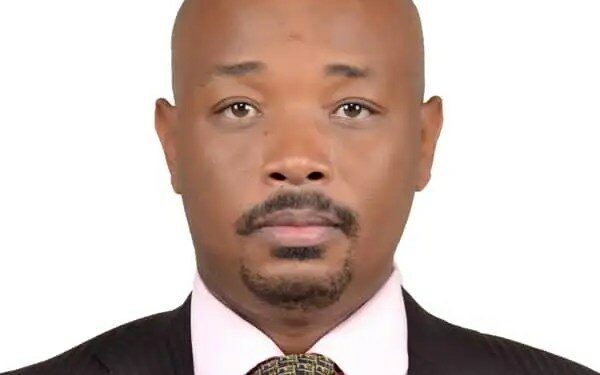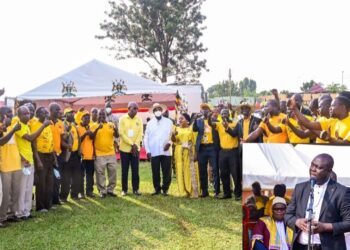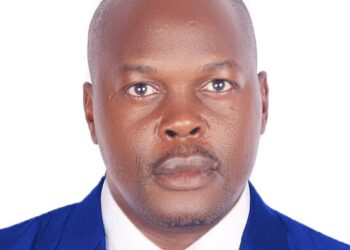Over the weekend, I travelled to kibimba and later made my way through Tororo municipality enroute my village in Budadiri. Hungry and thirsty, I made rounds in Tororo Town trying to locate a decent joint but to no avail. I was eventually directed to a restaurant located at a highway petrol station in the middle of town but was warned it would close by 8:00Pm.
For those who are not aware, Tororo is a boarder district and used to be a hub of all sorts of social and economic activities during day and in the night. Well, not any more, it is a sleeping giant. The same bug that turned Tororo town into a shadow of its past is the same bug that has eaten many other towns across the country.
I have been informed by very credible sources that the mentality of thinking the night was created for sleep was largely influenced by deadly wild animals during the medieval time but was made worse by the coming of the missionaries who claimed that the night was a safe haven for evil forces. Night movements were also restricted during the colonial times to control rebellion but now that is a thing of the past.
We easily forget that what we see as night in Uganda is broad day in other countries and even if it were night, these countries have segmented their work schedules. Their work system is designed in such a way that some employees work during the day while others in the night and often alternate the system throughout the year on a 24 hour calendar, why not in Uganda?.
A 24-hour economy needs to be guided by the following questions; what is the meaning and scope of a 24-hour economy? What are the key principles and tools required for implementing a 24-hour economy? What are the benefits of a 24-hour economy? What are the challenges of implementing a 24-hour economy in a third world country like Uganda?
As Ugandans, we seem to have forgotten that the world is now a global village that requires us to remain alert 24 hours with some people working during day and others at night although many of our people believe the night was meant for sleep. We must be mindful that whenever night falls in Uganda, it is day time elsewhere in the world where no one is willing to wait for us.
As a country, we must quickly adopt the ever changing trends to avoid leaving our facilities idol for long as most people break off at 5:00pm and return to work the following day at 8:00am. If market venders, police and army officers, customer care staff, prostitutes and security guards can work during the day and then assume other duties during the night, we must encourage our people to work across time zones to keep up the pace.
World over, a 24 hour economy is one of the drivers for generating income and opportunities, particularly for small medium enterprises with multiple formal and informal business operations conducted at night. With the advent of the Covid 19 pandemic, most activities including commercial night clubs, restaurants among others collapsed and I think now is the time for government to push the public and private sector to remain active in the night.
While speaking at the 12th CPA Economic Forum happening at the Imperial Resort Beach Hotel, in July 2024, Dr Fred Muhumuza, Director Economic Forum at Makerere University Business School examined the various benefits of the nighttime economy. To him, night time or 24 hour economy offers employment and consumer spending opportunities that boost the economy from both the supply and demand sides. Forget about working remotely and reliance on technology.
Shops and services with longer opening hours help to alleviate daytime congestion in urban spaces. Night consumers are often not shy to spend their money, no matter the cost. Dr Muhumuza made reference to the substantial cost of the nighttime economy, highlighting the occasional environmental and community challenges.
Moses Agaba Aibah, a well travelled businessman and Chief Executive officer of FIPRO believes that despite the evils associated with a 24-hour operation such as high crime rate and pressure on security organizations, both the private and public sector need to move out of their comfort zone if Uganda must compete with the rest of the world that never sleeps.
To address the growing concerns of the night time economy, Dr Muhumuza believes professionals should guide people in the informal sector in the night time economy by addressing information sharing and infrastructure contextualization. To him, night time economy and informalities cannot be separated, but the government should prioritize infrastructure development and regulation to instill confidence into those stuck in the past.
And how can the government promote the 24-hour economy? Create a standby security apparatus with numerous patrol vehicles and man power to provide security to those who accept to operate at night. Negotiate with employers to give incentives to those who accept to work in the night and as government, give special tariffs on electricity and discuss with service providers of the internet to charge lower rates to entities that enforce night shifts.
To Moses Agaba, the population must be categorized into formal employment and informal employment if the government must implement a 24 hour economy. To him, there is no reason why a vegetable seller in the market or those involved in printing an Nkrumah should close shop when workers can alternate shifts to allow others to have a break.
I am of course aware of our rigid laws but current economic times call for wisdom and the need to amend these laws to bring them into conformity with prevailing circumstances. I am also aware of other hindrances such as a lack of clear legal frameworks, ineffective regulations, ineffective government incentives, unreliable crime response units, unreliable transport among others but all these can be addressed where there is political will.
For instance, the government of Uganda can adopt a transformative leadership style and to encourage other sectors to fall suit. Entities and the Uganda Revenue authority, commercial banks, the transport sector, suppliers among others should never close even during the night. The government should create an environment which enables investors to obtain monetary value for their input if a 24 hour economy is adopted and implemented.
Wadada Rogers is a commentator on political, legal and social issues. Wadroger @yahoo.ca
Do you have a story in your community or an opinion to share with us: Email us at editorial@watchdoguganda.com













